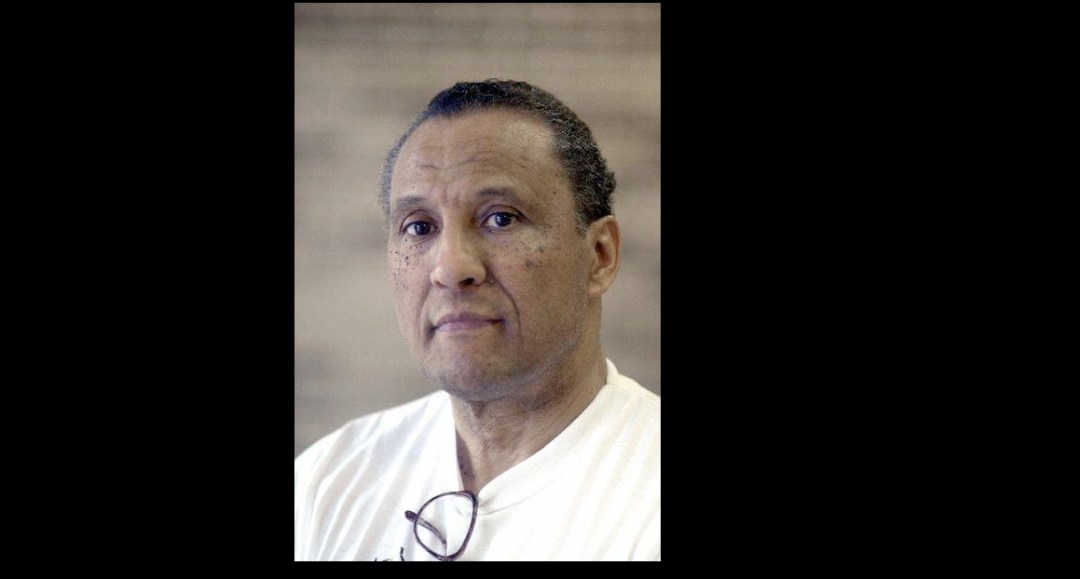
The last time I spoke to my padrino was on the phone in the Summer of ’08. I remember him saying, “Just be careful,” regarding an article I had written on Charles Hamilton.
I asked, why? He repeated it: “Just be careful what you put out there about people.” I think he was referring to the heroin use I mention in the piece. I didn’t understand his point at the time, but as I thought about it I got it. A former Black Panther, he was about the people. And I was giving the establishment some good stuff on Charles. Although I don’t think that had anything to do with his fall off the map, or him getting socked.
Bob inspired me and dozens of other young men towards greatness. I’ll never forget that. From the time I was a little boy, until I reached adulthood he was there. A college professor and public servant, he leaves behind a large, beautiful family, with tons of friends and admirers. As one of the founders of the NY chapter of the BPP, he also leaves his mark on history.
You can read more about him in this quasi-controversial write-up in the Poughkeepsie Journal. You can also learn more about the Panther 21 trial, of which he was a part of, in Murray Kempton’s “The Briar Patch.” There’s an archived 1996 radio show that brought Bob on to talk about his past, here, with an appearance by Boots Riley from The Coup.
Now who’s going to give me bendición, eh?
Rest in Freedom, padrino.
Photo from Poughkeepsie Journal
update: Just googled the man a few more times and came up with this New York magazine article from 1972 that mentions Bob and offers some behind-the-scenes of the shenanigans that went on at his trial. Also, came across It’s About Time, a site that offers current info on Black Panther Party alum, reunions and personal histories of the group.
It hipped me to a documentary on Oakland Black Panther Party co-founder Richard Aoki, who passed away last year. He was a Japanese American revolutionary credited with bringing the first straps into the party.

This man was truley an extrodinary man he has done things in this world unimaginable he deserves more reconigtion for his past acheviments and there will never be another BOB COLLIER he was loved by many including myself and hated by others but never the less he never gave up or gave in he always conquered his goals and defeated if not most all of his enemies nothing but love to you bob i wish we had more time
Marcus,
He’s still an inspiration to me, as a teacher and as a man. Thanks.
RIP BOB COLLIER
I was an old friend of Bob from when we both lived on Symphony Rd. in Boston, in 1961. He with his white wife Mona (who later had 2 children) and I, a white canadian going to Berklee school of music, and married in Boston to a black woman, which at that time even in the US was uncommon and illegal in 35 states. That, a common love of Jazz, and a revolutionary perspective made us close friends. He told me he had been an army officer, who organized a protest against black officer’s being exclusded from the white officers canteen. In punishment he got a “Yellow” discharge which as he explained was worse in effect than a “Dishonorable” discharge because it required less litigation for proof, but caused him problems in finding work.
My wife and I moved a while later, for me, back to Canada, not without problems from canadian border officials as my wife was a US citizen.We were taken off the bus and held for about 8hrs and interrogated, where I infuriated the officer when I replied to his question “Why did you marry this woman” with “Why did you marry yours” We were legal so he had to let us enter Canada. We were in contact to some extent after, but loosely. Bob and his 2 friends were suckered by the CIA in the Statue of Liberty incident a set-up in order to stir up fear in the US population against radicals, a common occurrence in the US. I myself sympathised with the quote of one of the guys about “blowing the bitches head off.”. It didn’t represent liberty for most blacks in the US. My wife and I went down to the states just before the March on Washington, picked up Mona and the kids and took them to NY. At that time he was running a community center in a church on the lower east side. He proudly showed us the basketball court which was filled with clothing donations up to the high ceiling, and which the kids had given up for the cause. We lost contact after that except for following events now and then in the radical press. I considered him a close friend and was sorrowfull when I heard of his death and he remains in my memory as such. A just and courageous person.
Lawrence,
Thanks for sharing your experience. I truly appreciate you giving us a little snapshot of my godfather’s life. I was aware of some of that info, but didn’t know he lived in Boston. I verified with my dad, who just nodded his head. Yup, that’s correct.
So, thanks again for checking out this post. How did you find it?